
The immense growth of the e-commerce industry, triggered largely by the COVID-19 pandemic in 2020, has seen a sharp rise in industrial spaces being built to cater to the global shift towards online shopping.
These industrial spaces typically consist of factories, warehouses, logistics buildings and even cold storage facilities. When it comes to constructing the flooring of any type of industrial space, the two key building elements that determine the efficiency of daily operations are the concrete slab and floor finish.
With multiple options available in the market, it is important for building owners and specifiers to be aware of how the specified products value-add to the construction process, final aesthetics, safety, and long-term durability and maintenance.
Arguably one of the most important parts of an industrial building is the slab-on-grade (SOG) concrete. It is particularly imperative as SOG is not only designed to carry the loads of the stored goods, but it is also designed to carry dynamic loads such as moving forklifts and lorries. Cracking occurs when the tensile stress in a section of slab exceeds the tensile strength of the concrete. Unplanned cracks in industrial spaces, if not quickly rectified, can lead to flooring deterioration that can present safety issues and potential product damage.
Additionally, joints are often the greatest source of maintenance problems in industrial or warehouse floors. Unfilled joints are especially vulnerable to damage and tend to “spall” under the impact from hard wheeled traffic.
Tremco’s 752HP flooring system is designed to deliver exactly these essential properties to the slab-on-grade of factories and warehouses, and built in accordance with ACI 302 and 360.
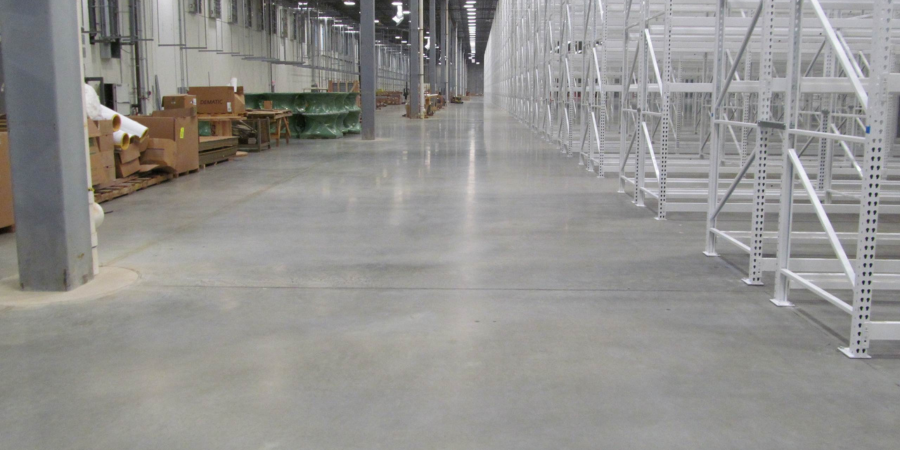
| Product | Description | Benefits |
|---|---|---|
| A patented polypropylene / polyethylene macro synthetic fibre successfully used to replace steel fibres, welded wire mesh and conventional reinforcing bars. | Suitable for a wide variety of applications that require enhanced flexural toughness, impact and abrasion resistance. It also helps mitigate the formation of plastic shrinkage cracking in concrete. | |
| CONEX | A powdered admixture used for compensation and total overall reduction of net shrinkage for Portland Cement concrete. | CONEX contains no added chlorides or chemicals known to promote the corrosion of steel. |
| Euco QWIKjoint UVR | A fast-setting, semi-rigid polyurea, primarily used for filling construction and control joints in industrial and commercial concrete floors. | It has greater ultraviolet light resistance and prevent colour fading. It will also cure in temperatures as low as -29°C. |
| EUCO Diamond Hard | A unique blend of silicate and siliconate polymers that penetrate concrete surfaces and chemically react to provide an increase in surface density, durability, and abrasion resistance. | Easy to apply and maintain, developing an attractive sheen that is enhanced over time (like polished concrete). |
The floors of industrial spaces are often subject to a long list of daily punishing challenges including physical impacts, point loading from heavy equipment and pallets, forklift truck traffic and corrosive industrial chemicals. To identify the best type of floor finishes for each type of industrial space, we can first look at the required surface characteristics:
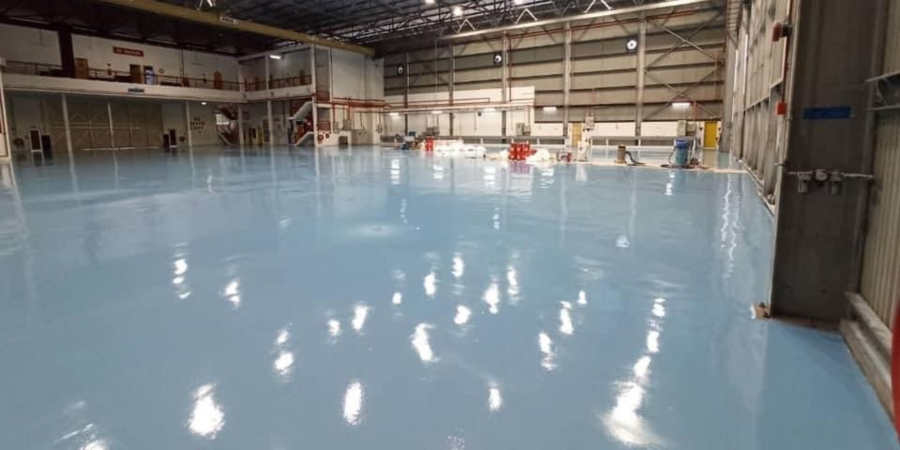
Flowcrete offers high strength resin flooring systems particularly suited to locations that need the ultimate in strength and durability, while maintaining a seamless and functional surface.
| Product Name | Description | Green Label Certified | Typical Uses |
|---|---|---|---|
| Flowshield SL | Flowshield SL is a high-gloss, self-smoothing epoxy floor finish that is compliant with CSM® (Cleanroom Suitable Materials) requirements and is USDA and FDA compliant | Yes | Cleanrooms, laboratories, warehouses, and storage areas. |
| Flowshield CR | Flowshield CR is a highly chemical resistant, self-smoothing epoxy resin floor finish suitable for dry process areas subject to chemical spillages. | No | Chemical storage areas, laboratories, warehouses, and printing plants. |
| Flowcoat SF41 is a high performance, chemical resistant, high-build epoxy coating system. It is solvent free and low in VOCs, making it an environmentally friendly option. Graded aggregate can be used to create a slip resistant profile if required. | Yes | Back of house areas, car park loading bays. | |
| Flowcoat HTS is a high performance, UV light stable, pigmented hybrid PU coating system with very high abrasion resistance. | No | Environments with heavy traffic such as loading docks, warehouses, traffic aisles. | |
A 2mm pigmented, self-smoothing polyurethane floor finish that provides great chemical resistance. | No | Vehicle workshops, engineering factories. | |
| Flowtex PT | A power trowelled, heavy duty, epoxy screed suitable to receive a variety of chemical resistant and hard-wearing floor finishes. | Yes | Any industrial environment. |
There is also a growing number of specialised industrial facilities, known as refrigerated warehouses, used to store anything from perishable groceries to biopharmaceuticals at very low or below freezing temperatures. The spaces of these cold storage facilities are highly regulated to ensure that all the health and safety standards surrounding the perishable goods are met.
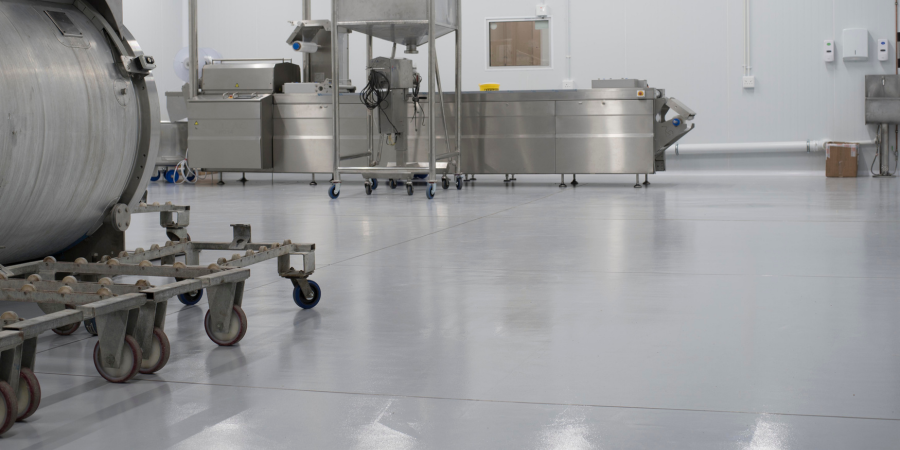
The flooring for cold storage facilities needs to be withstand sub-zero temperatures and be easy to maintain, ideal for food manufacturing and processing environments where you cannot afford to shut down operations for long periods of time.
Flowcrete’s Flowfresh polyurethane flooring systems possess excellent thermal shock properties and strong chemical-resistance. All Flowfresh systems have the Polygiene® antimicrobial additive added to their composition and are HACCP International Certified to satisfy the highest possible hygiene and food safety standards.
Based on the above, it is clear that the flooring spaces of industrial facilities can and should be tailored according to their diverse requirements. Choosing the right flooring can mitigate long term maintenance costs and help to create a safe environment for the occupants by reducing the likelihood of accidents and injuries.
Get in touch with one of our flooring experts to find out more about what Tremco CPG can do for you in your next flooring project.
 |
Need Support? |
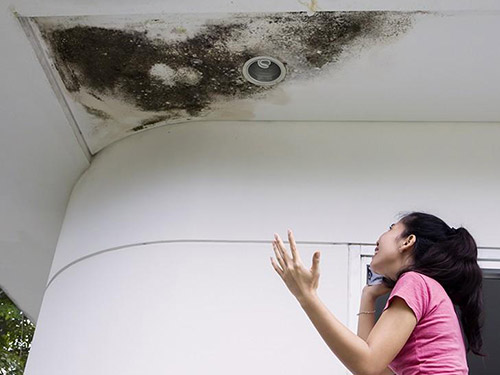 Waterproofing and Roofing
Common Problems Associated with Poor Waterproofing
Waterproofing and Roofing
Common Problems Associated with Poor Waterproofing
In order to construct a building that will stand the test of time, one of the key factors is the application of high-quality waterproofing. A poorly designed and installed...
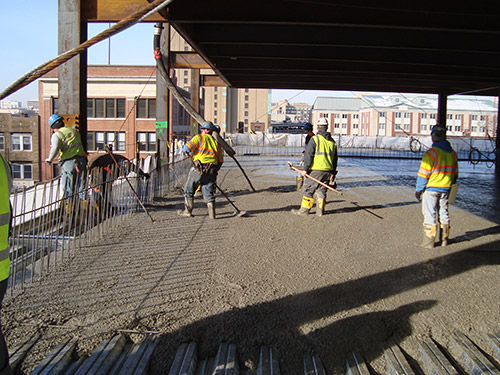 Concrete
Top 5 Fibre-Reinforced Concrete FAQs
Concrete
Top 5 Fibre-Reinforced Concrete FAQs
Euclid Chemical has created a series of Technical Bulletins on a variety of topics related to the successful use of Fibre-Reinforced Concrete (FRC). These documents are provided to serve...
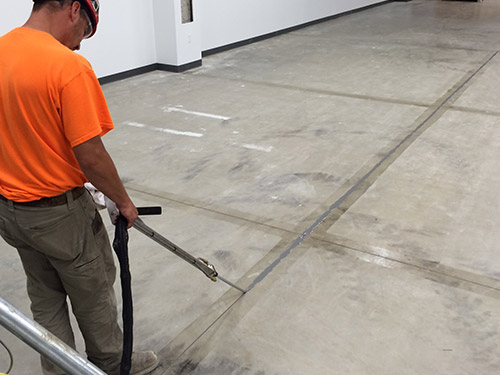 Concrete
Concrete Floor Joint Repair Solutions
Concrete
Concrete Floor Joint Repair Solutions
As you know, joints are cut in new concrete floors to control cracking. As a fresh concrete slab hardens, it reduces in volume and shrinks. When this shrinkage is restrained by...

Sign up for our newsletter

© 2024 Tremco Incorporated

